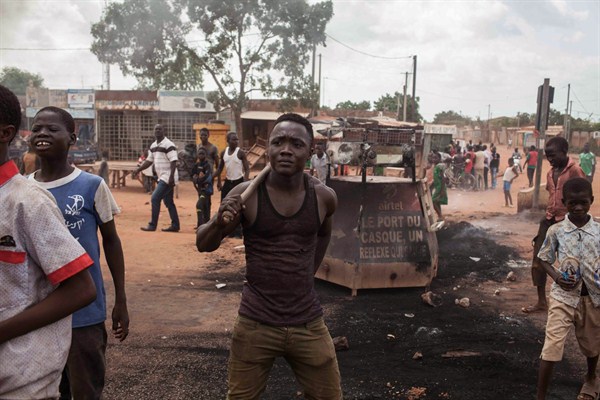Hailed at the time as the start of an “African Spring,” the October 2014 revolution that ousted President Blaise Compaore in Burkina Faso was called into question last month when an elite army unit staged a brief coup. But even before soldiers under the command of Gen. Gilbert Diendere derailed the transition, the process was in many ways already disappointing. Now the coup’s failure has opened another window of opportunity for real democratic progress, but serious questions over the likelihood of true reform remain.
Many of Burkina Faso’s contemporary challenges are deep-rooted. Some of the country’s most important political figures today have shaped Burkinabe politics since the 1980s, and others grew up and became politically aware in their shadow.
Towering over them all is Compaore, who remains without a doubt the most influential politician in Burkina Faso’s history, largely thanks to his 27-year tenure. When he was ousted in late October 2014, the majority of the country’s population had never known another head of state.

